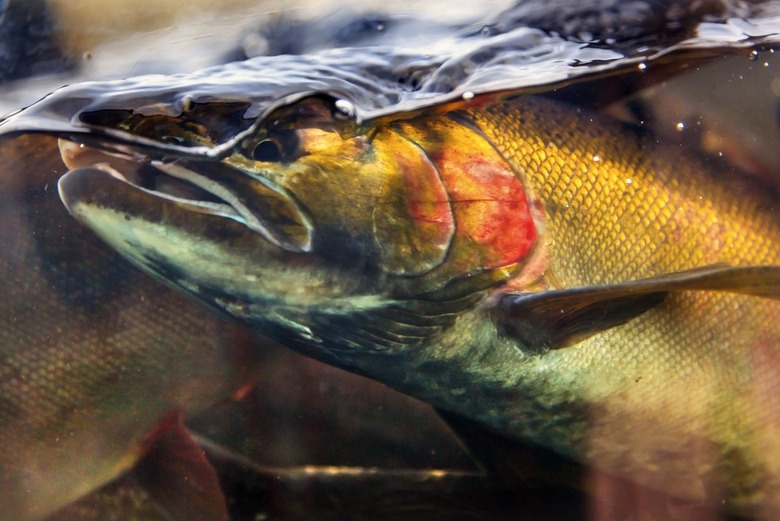Salmon Caught In Puget Sound Tests Positive For Caffeine, Nicotine, OxyContin, Valium, And Other Drugs
A sample of salmon caught from the Puget Sound, along the northwestern coast of Washington State, has tested positive for multiple drugs — including Prozac, Valium, Lipitor, caffeine, nicotine, cocaine, and multiple antibiotics. The fish also tested positive for Paxil, OxyContin, DEET, and comparatively tame medicines like Tylenol and Advil.
In total, 81 drugs and personal care formulas were detected in the tissues of migratory juvenile Chinook salmon and resident staghorn sculpin, another Pacific coast fish. Salmon migrating through the contaminated water tend to die at twice the rate of other fish, according to a recent study.
Researchers from Seattle's Northwest Fisheries Science Center suspect that the highly medicated fish became that way because the estuary waters are near the outfalls of a number of sewage treatment plants. The Puget Sound area is home to 106 wastewater plants, discharge from which enters local waters. Typically, estuaries are meant to filter pollutants, which is particularly important for the billion-dollar Northwest fishing industry.
The findings are particularly troubling to researchers because a number of these chemicals are not monitored or regulated in wastewater, so their environmental toxicity has not been studied.
Although some of these chemicals can be removed through treatment, many drugs are incredibly difficult to eliminate. "You have treatment doing its best to remove these, chemically and biologically, but it's not just the treatment quality," Betsy Cooper, an administrator for wastewater treatment, told the Seattle Times. "It's also the amount that we use day to day and our assumption that it just goes away, but not everything goes away."
